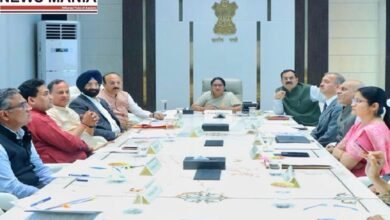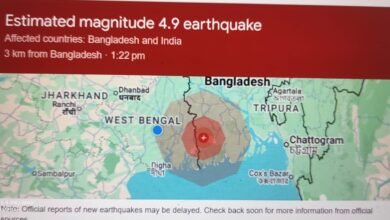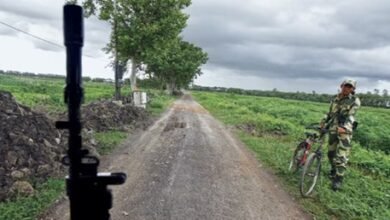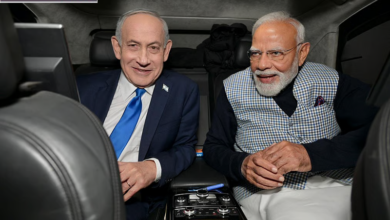Delhi’s Water Crisis: Protests, Vandalism, and Political Turmoil
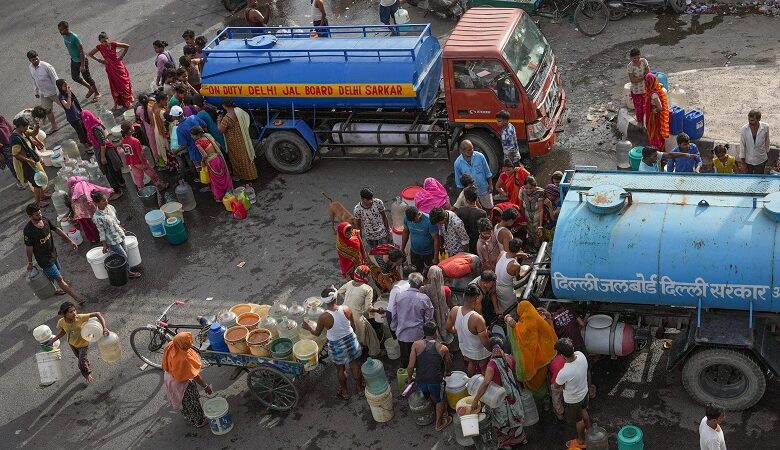
News Mania Desk/ Agnibeena Ghosh/18th June 2024
Delhi is grappling with a severe water crisis, leading to widespread protests, vandalism, and intense political clashes. On Sunday, the Delhi Jal Board (DJB) office in Chhatarpur was vandalized by unidentified individuals, highlighting the escalating tension. Footage shared by ANI showed shattered windows and broken earthen pots at the DJB office. BJP leader Ramesh Bidhuri acknowledged the public’s anger but condemned the destruction of public property, emphasizing that damaging government and community assets is futile.
In another incident in Dwarka, a dispute over access to water from a communal tap escalated, resulting in three people being injured and hospitalized at Indira Gandhi Hospital. The Delhi Police reported that two emergency calls were made regarding the altercation, and cross-cases have been registered based on statements from both parties. They assured the public that there was no communal angle to the conflict and that a thorough investigation is underway.
BJP MP Harsh Malhotra criticized the AAP government, accusing it of corruption and mismanagement. He claimed that despite receiving sufficient water for Delhi’s population, the current shortage is due to the government’s corruption, poor planning, and inaction. In response to the worsening crisis, Delhi’s water minister, Atishi, wrote to Police Commissioner Sanjay Arora, requesting the deployment of personnel to protect major water pipelines from potential sabotage. She cited a recent incident of deliberate damage to a key pipeline in South Delhi, which aggravated the water shortage.
BJP MP Manoj Tiwari led a ‘matka-phod’ (earthen pot breaking) protest, expressing frustration over the recurring annual water crisis. He accused Atishi of deceit and criticized the AAP government’s lack of work ethic and policy, claiming they are intent on looting the treasury. Tiwari warned that the people of Delhi would hold the government accountable for their actions.
Delhi BJP chief Virendra Sachdeva echoed these criticisms, attributing the crisis to water theft, tanker mafias, and neglected infrastructure. He lambasted the Delhi government for its failure to implement a summer action plan and for not addressing the water supply system issues over the past decade. BJP MP Kamaljeet Sehrawat and other party workers held a ‘MatkaPhod’ protest in Delhi’s Najafgarh. Sehrawat also inspected a water pipeline in Dwarka and reported significant water wastage due to broken pipes. She urged the Delhi government to address these infrastructural issues, pointing out that private water tankers are expensive and government tankers are often unavailable.
Bansuri Swaraj, BJP MP from New Delhi, accused the AAP government of fabricating the crisis. She argued that Delhi has ample water, with Haryana discharging more than the agreed amount. However, she claimed the AAP government’s decade-long tenure has left the DJB with a 7,300 crore loss due to neglected repairs and infrastructure improvements. Swaraj highlighted that 40% of water is wasted or stolen by illegal tanker mafias allegedly backed by the AAP government.
The water crisis in Delhi has not only sparked vandalism and protests but has also fueled a heated political blame game. The BJP has consistently criticized the AAP government’s handling of the situation, accusing it of corruption, mismanagement, and a lack of proactive measures. In contrast, the AAP government has sought to reassure the public by taking steps to protect key water infrastructure and addressing the immediate needs of the population.
As Delhi’s water crisis continues to unfold, the city’s residents remain caught in the crossfire of political rhetoric and urgent calls for effective solutions. The situation underscores the need for comprehensive planning and collaboration among all stakeholders to ensure a sustainable and equitable water supply for the capital.



